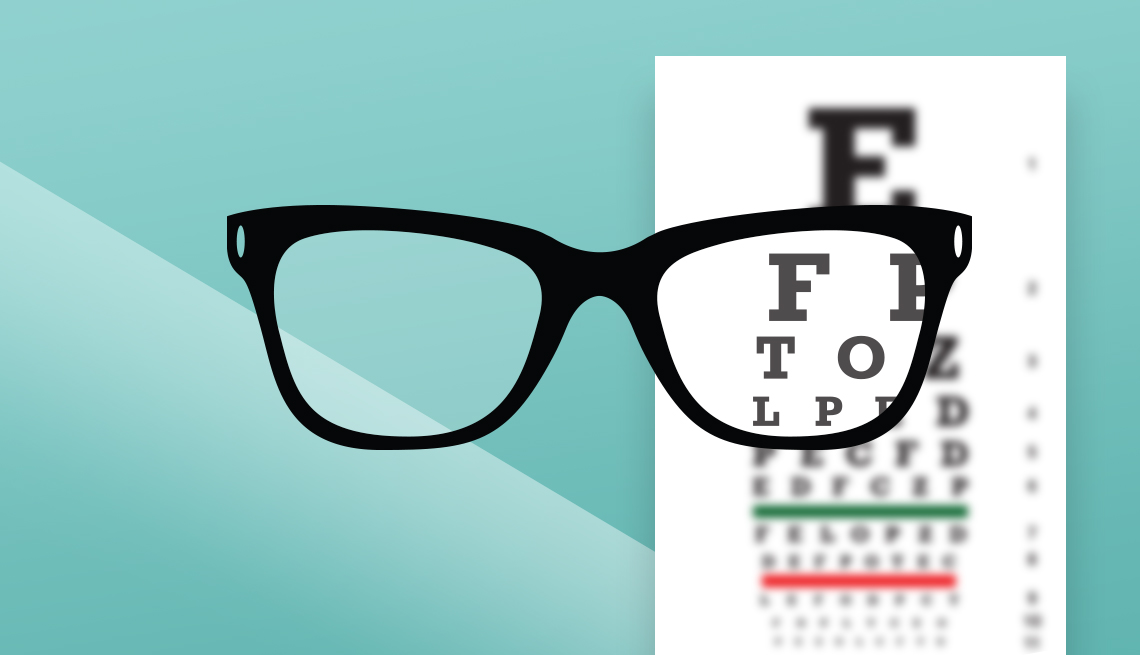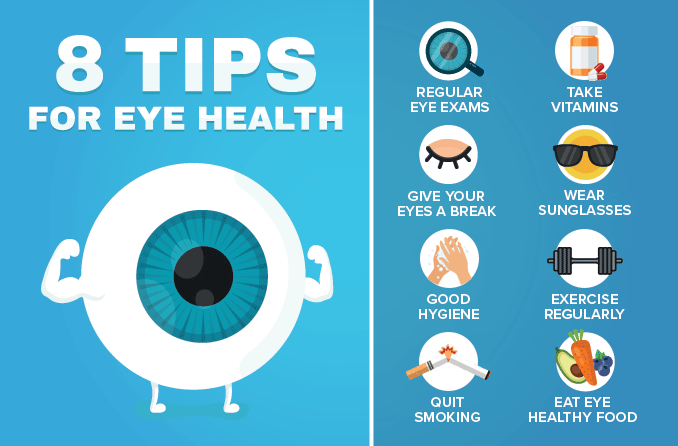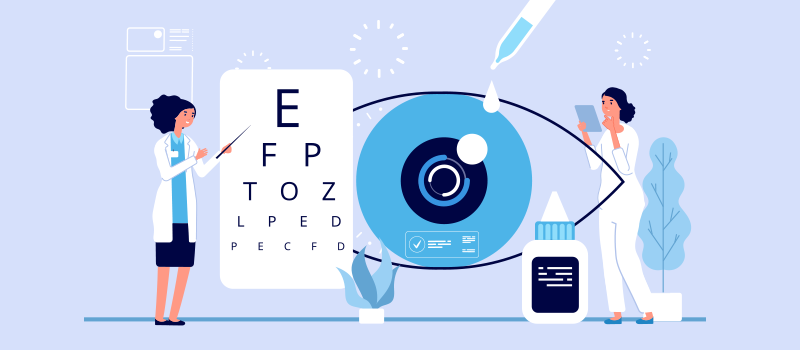Vision Gesundheit: Enhancing Your Eye Health
Vision Gesundheit focuses on maintaining and improving eye health through proactive measures and lifestyle choices. With an increasing number of individuals affected by eye conditions, understanding how to protect and nourish your eyesight is crucial. This article will delve into various aspects of vision care, providing you with actionable tips and insights to keep your eyes healthy.
Understanding Eye Health
Maintaining good eye health is essential for a high quality of life. Regular eye check-ups can help detect problems early when they are more easily treatable. Conditions like glaucoma, macular degeneration, and diabetic retinopathy can severely affect vision if not caught in time. It’s important to recognize early warning signs, such as blurred vision or persistent eye strain. Further, proper **nutrition** plays a critical role in supporting vision health. A diet rich in vitamins A, C, and E, along with omega-3 fatty acids, helps protect your eyesight. Incorporating colorful fruits and leafy greens ensures a well-rounded approach to eye health, fortifying your vision well into the future.
The Importance of Regular Eye Exams
Regular eye exams should be a cornerstone of any vision health strategy. These examinations help in identifying issues like high blood pressure and diabetes as they may first become evident through eye health changes. The American Academy of Ophthalmology recommends that adults have a comprehensive eye exam at least every two years, or annually for those over 60. Young adults should also prioritize eye exams especially if they spend long hours in front of screens. Comprehensive eye care ensures early detection and aids in crafting an effective treatment plan tailored to your ocular needs.
Healthy Habits for Eye Protection
Adopting healthy daily habits can significantly impact eye health. These include taking regular breaks from screens, using proper lighting while reading, and ensuring ergonomic setups at workstations. The 20-20-20 rule can help mitigate digital eye strain: every 20 minutes, look at something 20 feet away for at least 20 seconds. Furthermore, wearing sunglasses that block 100% of UVA and UVB rays is crucial for long-term protection against harmful solar radiation. Staying physically active also promotes blood flow to the eyes and can reduce the risk of chronic eye diseases.
Nutrition and Eye Health
The foods you consume have a profound effect on eye health. Key nutrients such as **lutein, zeaxanthin**, and beta-carotene can protect and improve vision. Leafy greens like spinach, kale, and broccoli are excellent sources of these nutrients. Including fish high in omega-3 fatty acids, such as salmon or sardines, can also help protect against dry eyes and macular degeneration. Incorporate a variety of colorful fruits and vegetables into your diet to maximize nutrient intake, and consider supplementation if you have difficulty consuming enough through diet alone.
Practical Foods for Better Vision
A well-rounded diet contributing to vision health includes a mix of these specific food groups:
– **Leafy greens**: Spinach, kale
– **Fish rich in omega-3s**: Salmon, sardines
– **Nuts and seeds**: Walnuts, flaxseeds
– **Brightly colored fruits and vegetables**: Carrots, bell peppers, blueberries
For example, a delicious tropical smoothie made with spinach, berries, and flax seeds can be both nutritious and beneficial for your eyes, providing key vitamins in a tasty package. Be proactive about incorporating these foods into your meals; it can make a significant difference over time.
Hydration’s Role in Vision Health
Staying hydrated is another crucial element often overlooked in discussions about eye health. Proper fluid intake not only supports overall bodily functions but helps in the production of tears, which are essential in preventing dry eyes. Adults should aim for at least eight glasses of water daily, although individual needs can vary based on activity levels and climate. Reducing intake of sugary or caffeinated beverages can further promote hydration and reduce the risk of issues like dry eye syndrome.
Vision Change Management
When faced with vision changes, knowing how to respond becomes imperative. Signs such as continual blurriness, sudden flashes, and floaters require immediate attention from an eye care professional. Whether you have chronic conditions like diabetes or are experiencing age-related vision changes, focusing on management strategies can help maintain your vision. Regular consultations, prescribed treatments, and lifestyle modifications are all part of effective vision management. **Living with less-than-optimal vision can be challenging,** but active management can significantly enhance your quality of life.
Technology Influence on Vision
The pervasive role of technology in our lives can’t be overlooked, especially regarding its impact on our eyes. Extended screen time can lead to digital eye strain, characterized by dryness, blurred vision, and headaches. Implementing the **20-20-20 rule** alongside proper screen brightness and distance can help alleviate these issues. It may also benefit utilizing blue light filters or special glasses designed to reduce blue light exposure. Being aware of your screen habits and employing these strategies can safeguard your vision while navigating the digital age.
Support Groups and Resources for Vision Issues
For individuals facing significant vision changes or challenges, connecting with support groups can provide assistance and empower individuals through shared experiences. Organizations like the American Foundation for the Blind offer resources, advocacy, and community for those desiring support in coping with vision impairments. Additionally, connecting with well-trained eye care professionals ensures you are in the right hands for tailored treatments and practices.

Conclusion and Key Takeaways
In conclusion, understanding **Vision Gesundheit** involves proactive steps towards optimal eye health. Regular exams, a nutrient-rich diet, healthy habits, and support systems are essential parts of a comprehensive vision care approach. Making small, consistent changes to your routine can yield significant improvements in your eye health and overall quality of life. Keep your eyes receptive to changing conditions and stay on the lookout for them. **Prioritize your vision today** for a brighter tomorrow.

FAQ
1. What are some early signs of vision problems to look for?
Some early signs of vision problems include blurred vision, difficulty focusing, or noticing significant changes in your visual field. Regular screenings with your eye care professional can help identify these issues early, so make those visits a priority.
2. How often should I have my eyes examined?
It is recommended to have a comprehensive eye exam at least every two years, or more frequently for those over 60 or experiencing vision issues. Young adults should also undergo eye exams, particularly if they spend long hours in front of screens.
3. Can I improve my vision naturally?
While you cannot improve your actual visual acuity without corrective lens or surgical intervention, you can support overall eye health through nutrition, protecting your eyes from strain, and engaging in exercises that promote ocular muscle relaxation.
4. What role does stress play in eye health?
High stress levels can contribute to eye strain and headaches, which negatively impact vision. Managing stress through techniques like meditation, regular exercise, and proper sleep can help alleviate these symptoms.
5. Are there specific vitamins that benefit eye health?
Yes! Vitamins A, C, and E, along with zinc and omega-3 fatty acids, are crucial for maintaining healthy vision. Consuming foods rich in these nutrients can provide necessary support for long-term eye health.
6. How does hydration affect my eyes?
Surprisingly, hydration plays a significant role in eye comfort. Staying hydrated ensures the body produces enough tears, reducing the chance of dry eye syndrome and keeping the eyes comfortable during daily activities.
7. Where can I find more resources on vision health?
Organizations such as the American Academy of Ophthalmology, the American Foundation for the Blind, and local healthcare providers offer substantial resources regarding eye health, management strategies, and community support for those dealing with vision changes.
